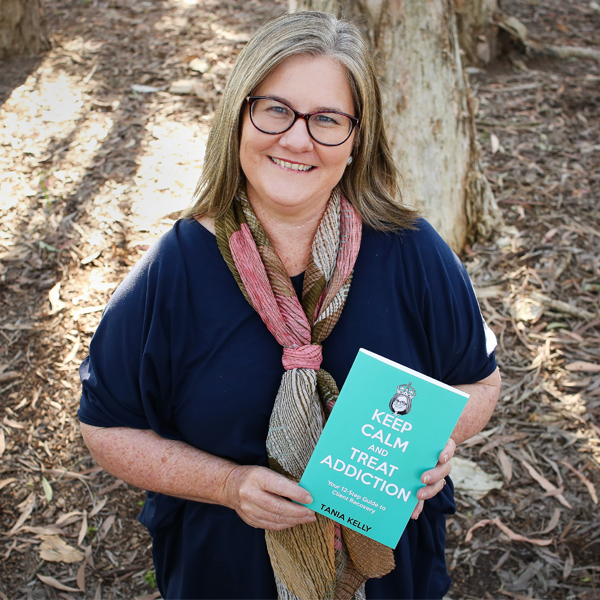Insomnia is a condition that many people have faced at some point in their lives. For some, it is chronic, and they require prescription medication to be able to get asleep. One of the most effective drugs of this kind is known as Ambien or zolpidem.
Table Of Contents:
This drug is a sedative, helping to slow down the nerve activity in the central nervous system and put the user to sleep. Unfortunately, it has become a drug that many people abuse and even get addicted to.
When individuals who abuse Ambien attempt to quit, they are met with uncomfortable withdrawal symptoms. Some of these can be dangerous to the addict, such as seizures and delirium, and as a result, it is important to treat the addiction the proper way to avoid these.
Addicts need to know about these signs and the dangers that zolpidem abuse can cause to them and others. One of the possible signs of abuse is driving while asleep, and this does well to show the possible dangers of indiscriminate use. This article will discuss Ambien withdrawal, its symptoms, and the proper way to stop its use.
Ambien Withdrawal Mechanism
Many individuals who abuse zolpidem may attempt to stop using the drug independently, and they may do this all at once. This is known as quitting ‘cold turkey’. However, the sudden cessation of the medication can significantly worsen the withdrawal. Quitting Ambien without assistance can cause problems, and it is important to get professional help when doing so.

The process and symptoms of withdrawing from zolpidem can be explained by a gradual development of tolerance and dependence on the drug over some period of time. As a result, when a patient discontinues taking the drug, the adverse signs manifest.
Ambien Withdrawal Duration
Generally, an individual will experience Ambien withdrawal for 2 weeks, with the worst of the effects occurring between days 3 and 5. Symptoms that will remain after 2 weeks are called post-acute withdrawal symptoms (PAWS). They may last for months depending on several factors.
Factors That Affect Ambien Withdrawal Duration
How an individual abuses zolpidem will have a large effect on the nature of their symptoms. Some factors can make these more intense or last for much longer.
These factors include:
- How long the individual abused the drug for
- The dosage that the individual frequently used
- The manner in which they abstained from the drug (i.e, cold turkey or tapering)
- The individual’s age. Older people tend to experience for longer
Ambien Withdrawal Symptoms
Once a person on Ambien stops using the medication, they may begin to experience these symptoms. The central nervous system was already used to the presence of this medication in the system, and suddenly stopping it leaves it unable to adjust and causes problems instantly.
Psychologically, these can manifest as the following:
- Extreme mood swings
- Panic attacks
- Irritability
- Depression
- Severe anxiety
- Delirium
- Rebound insomnia
- Ambien cravings
The physical signs that can occur are:
- Tremors
- Increased heart rate
- Increased respiratory rate
- Sweating
- Fever
- Hot flushes
- Nausea
- Vomiting
- Abdominal and muscle cramps
- Lightheadedness
- Fatigue
- Seizures
Zolpidem Withdrawal Timeline
There is a sequence for most people by which the signs of Ambien withdrawal begin to appear. This timeline can be applied to most people who abuse zolpidem and stop.
As the body clears the drug from the system, different brain sections are starved of zolpidem. Because they have already gotten used to the drug, they begin to struggle to cope, which results in those symptoms.
First 2 Days
Zolpidem half-life is short. Individuals who have developed a dependence on this drug may start experiencing zolpidem withdrawal symptoms as early as 4 to 8 hours after the last dose of Ambien. During the first 2 days, people are most likely to experience rebound insomnia, mood swings, mild confusion, and difficulty concentrating.
Days 3 To 5
Signs of withdrawal from Ambien will peak between 3 and 5 days after the last dose. Individuals often complain of stomach pain, anxiety, confusion, depression, mood swings, flushing, and flu-like symptoms.
It is also difficult to sleep. Users may feel nauseated and shaky. Others experience panic attacks. Rebound insomnia remains to be a problem during this phase.
Weeks 1 To 2
For most users, Ambien withdrawal symptoms will subside within the first 2 weeks. However, in some cases, Ambien psychological side effects, including anxiety, depression, and insomnia, may continue for months. Others may also experience ongoing cravings. Tremors, hallucinations, and seizures may rarely occur among individuals who stop zolpidem cold turkey.
Best Method for Stopping Ambien Safely
Many individuals reach a point where they realize that they need to stop their zolpidem abuse. These people may stop the drug cold turkey without any medical guidance. This should never be attempted.
Weaning off Ambien suddenly can cause intense and long-lasting symptoms, the most dangerous among these being seizures, which can be fatal. It is important that people seek information from their healthcare workers before attempting to stop the drug. Gradually decreasing the amount of the drug taken, or tapering, remains the safest approach to stopping Ambien, and cold turkey should never be used.

Professional treatment centers remain the premium option for people weaning off Ambien. Here, they will undergo detoxification. This period is used to allow the body to clear zolpidem out of itself and is when the symptoms hit the hardest. As an inpatient, there is around-the-clock supervision to ensure the patient is safe at all times while undergoing detox, as well as medication to make the period easier to bear.
Getting Help for a Zolpidem Addiction
While Ambien overdose is possible, especially when combined with alcohol or other drugs, most withdrawal symptoms are not severe and can be managed without medication. However, when these adversely interfere with a patient’s daily life, The treating physician can prescribe some medical remedies to ease the effects. In the cases when rebound insomnia is severe, physicians may recommend short-term use of sedative medications.
Patients who are suffering from severe anxiety and suicidal thoughts are likely to be given mood-stabilizing drugs. Anti-nausea and anti-seizure drugs may also be used to manage other symptoms.
Also, physicians switch patients to long-acting benzodiazepines during the process to ease the effects caused by stopping the use of zolpidem. Remember, you should not combine Ambien and alcohol to avoid aggravating your symptoms.
Ambien is prescribed frequently for the treatment of insomnia and other conditions. Many abuse this drug, unfortunately. Individuals mustn’t abstain from the drug all at once. It is recommended that zolpidem is tapered off to reduce the risk of withdrawal symptoms.
When trying to stop Ambien abuse, the best line of action is to check into a professional rehab center. Rehabilitation centers offer cognitive and behavioral therapies, psychoeducation, family support, social group discussions, along with medical interventions. All these help a person finally leave addiction behind for good.
Page Sources
- Hoque R, Chesson AL Jr, Zolpidem-induced sleepwalking, sleep related eating disorder, and sleep-driving: fluorine-18-flourodeoxyglucose positron emission tomography analysis, and a literature review of other unexpected clinical effects of zolpidem, 2009, https://www.ncbi.nlm.nih.gov/pmc/articles/PMC2762721/
- Dudyala S, Reddy PRK, Siddarama R, A Case Report on Zolpidem Abuse: Dependence and Withdrawal Syndrome, 2018, https://www.jbclinpharm.org/articles/a-case-report-on-zolpidem-abuse-dependence-and-withdrawalsyndrome-4566.html
- Mattoo SK, Gaur N, Das PP, Zolpidem withdrawal delirium, 2011, https://www.ncbi.nlm.nih.gov/pmc/articles/PMC3229797/
- Cubala WJ, Landowski J, Seizure following sudden zolpidem withdrawal, 2007, https://www.sciencedirect.com/science/article/abs/pii/S0278584606002971
- Chien C, Huanga H, Lung F, Lin C, Zolpidem withdrawal delirium, seizure, and acute psychois: Case reports and literature review, 2008, https://www.tandfonline.com/doi/abs/10.3109/14659890903013067
- Voshaar R, van Balkom A, Zitman F, Zolpidem is not superior to temazepam with respect to rebound insomnia: a controlled study, 2003, https://www.sciencedirect.com/science/article/abs/pii/S0924977X03001925
- Sun Y, Lin C, Lu C, Hsu C, Kao C, Association Between Zolpidem and Suicide: A NAtionwide Population-Based Case-Control Study, 2015, https://www.sciencedirect.com/science/article/abs/pii/S0025619615008800

 Authored by
Authored by  Reviewed by
Reviewed by 
